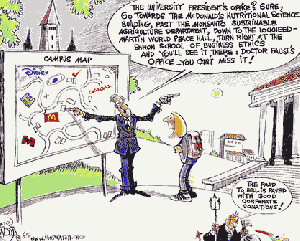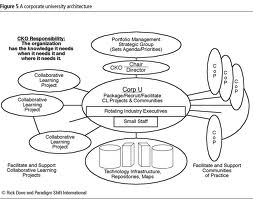This entangled relation runs along a number of dimension. First there is the performativity of economics: in which ways do economic theories shape the ideas of policy makers and hence the policies they enact (i.e. the
Donald MacKenzie story)? Are economists and their rational market hypothesis, CAPM models and what have you responsible for the deregulation that led to the recent financial turmoil? If so, how should economics and its relation to policy making be reorganized institutionally? Second, is it at all possible to be politically and ideologically value-free as an economist? If so, how do we distinguish a value-free economist or economic theory from value-laden ones? If not, should economists always state their ideological points of view in the first disclaimer-footnote of their papers? Are there other ways to sufficiently disentangle ideology from science? Third, should economists be allowed to be paid by the private sector for their academic work? Do we need an economic code of ethics or some other kind of formal arrangement to distinguish more clearly between academic credibility and financial gain?

Luckily, we economists need not figure this out all by ourselves. In fact, the last few years have seen a surge of books discussing the role of science in the contemporary for-profit world. Gaye Tuchman’s Wannabe U (2009) tells the story of the middle ranked university that aspires to become an elite university in an age of auditing and ranking in which universities are run by business men in business suits. Yet, although the undertone is clearly critical, Wannabe U first of all is a careful and engaging ethnographic reconstruction of the archetypical Western university that had to transform itself in the 1990s from a public institution to a private enterprise. Moreover, it reads like a novel.
The different contributions to Harold Kincaid, John Dupré and Alison Wylie’s Value-Free Science? (2007) discuss the topic from a philosophical and theoretical point of view. The basic message is that the old fact-value distinction cannot be maintained. To some extent, that is an almost trivial point. The more important argument, therefore, is that although at some level we all know that the fact-value distinction cannot be maintained, we constantly act as if it does. That, the authors argue, is a fault of contemporary society that needs to be cured. Scientists should make clear how facts and values mingle in their work, politicians should not be allowed to rely on “objective facts,” and moral convictions should never be argued to be based on values alone. Yet, convincing as the book is, it is somewhat unfortunate that the authors do not translate their calls for action into concrete measures.
Theodore Brown’s Imperfect Oracle (2009) is the book of a distinguished chemist, successful university administrator, and well-informed reader of sociology and philosophy who towards the end of a long career reflects on the waning authority of science. The key premise is that with all the problems the world currently faces, there is so much science could offer. Yet public opinion accepts less and less of science and scientists. Thus, the central question Brown addresses is how to restore the authority of science. This book should perhaps be read not so much as a deep or new account of the place of science in contemporary society, but rather as a well-written intellectual autobiography of one of those scientists who ruled the universities in the post war decades.
In contrast to these three general accounts, the different contributions to Hans Radder’s The Commodification of Academic Research (2010) seek to investigate the topic from the bottom up. The book provides detailed accounts of the politics and economics of patents on academic research, the management of data , and the different sources and consequences of financial interests in academic research. Sometimes, the authors force themselves somewhat unnecessarily to infer more general claims about science, private enterprise, or autonomy. But the chapters offer enough in simply describing the different elements of corporate science.

To save the economic discipline it would certainly help when all economists would read Kincaid’s Value-Free Science?. But before answering the bigger questions of whether economics should have a code of ethics, and how universities and research should be funded and organized, we would perhaps do good to first understand the system itself. What would most help the discussion now are detailed sociological, economic and historical accounts of how the economic discipline, economic departments, and economists function and have functioned. Both in the bygone days of the public university and authoritative science, and in the contemporary era of auditing, ranking, financial interests and business suits. Much like Tuchman’s Wannabe U or Radder’s Commodification perhaps. By chance, that happens to be what I’m doing and I’m willing to offer my expertise. Who gives me grant? I’m (still) quite cheap



